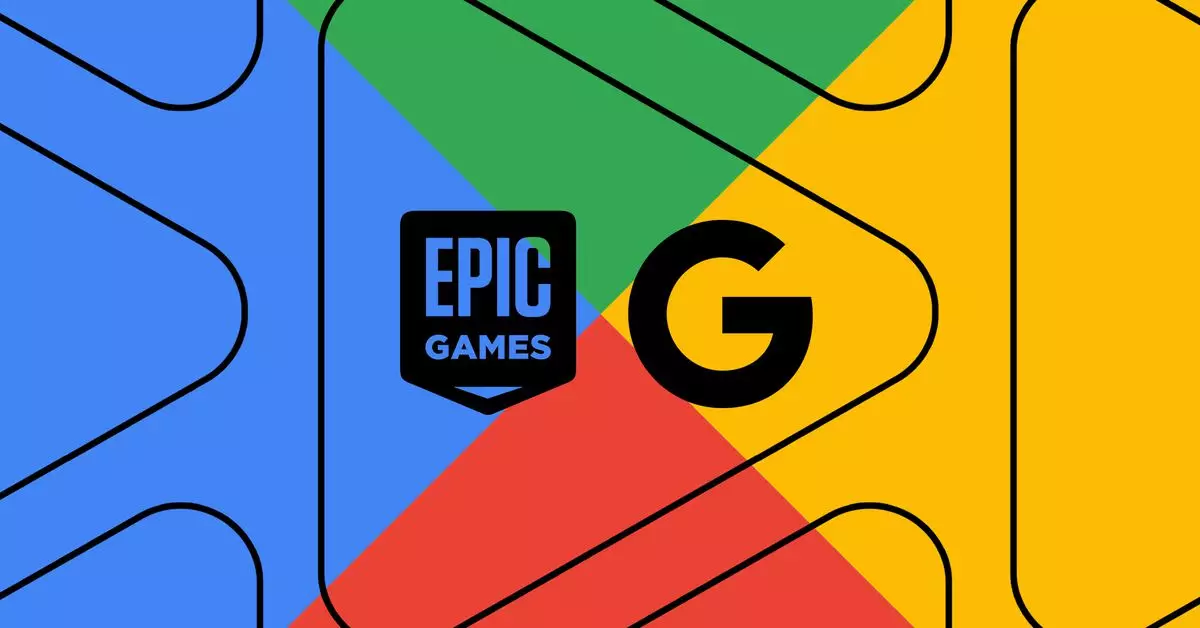In an unprecedented legal development, a California court has ordered Google to dismantle its monopolistic control over the Google Play Store, marking a significant shift in the app distribution landscape. In a case that has drawn considerable attention, Judge James Donato has mandated a series of changes that will not only empower developers but also open the floodgates for competition within the app market. Starting from November 1, 2024, Google must alter its practices for three years to allow rival app stores access to its platform and facilitate developers in finding alternative payment methods.
The ruling emerged from the long-standing battle between Epic Games and Google that began on August 13, 2020, the date Epic strategically opted to challenge both Google and Apple by releasing a direct payment option in their popular game, Fortnite. This bold move led to swift retaliatory actions by both tech giants, leading to Epic’s removal from their app stores. Rather than backing down, Epic ignited a vocal campaign for their rights, culminating in a series of lawsuits aimed at dismantling what they accused both companies of: creating illegal monopolies.
The Implications of the Ruling
Judge Donato’s ruling goes far beyond lip service; it enforces tangible changes that will dismantle many of Google’s restrictive practices. Developers will no longer be shackled to Google’s payment system, which was found to be a coercive tie-in to their app ecosystem. Instead, they will be able to inform users about diverse payment methods, link to external downloads, and set their own prices. These changes signal a crucial victory for developers who have long complained about the high fees imposed by Google.
Moreover, Google is forbidden from leveraging its substantial market power to entice developers into exclusive agreements or preinstallation deals that exclude potential rivals. Such practices have long barred competition and innovation while keeping app prices artificially high. However, it is worth noting that Google retains some controls to ensure security as it opens itself up to other platforms—a necessary measure to uphold user safety amidst a diversified app landscape.
The Broader Context of Epic’s Legal Campaign
Epic Games had already faced a considerable setback in its case against Apple, where it achieved limited success in contesting anti-steering rules but failed to overturn the broader structure of fees and restrictions imposed by Apple. In contrast, the revelations from the courtroom battles against Google unearthed compelling evidence of malfeasance; during the proceedings, Epic effectively demonstrated that Google’s practices were not only anti-competitive but also created barriers that disadvantaged new and smaller developers.
Epic’s empirical evidence of Google’s fear-driven tactics was especially telling—an assertion that the tech behemoth perceived threats to its market dominance. As it became increasingly clear that Google was aware of its monopolistic practices, the court’s unanimous verdict in favor of Epic came as a vindication for those who have felt stifled by the industry’s gatekeepers.
While Google has expressed intentions to appeal this ruling—which could delay its implementation—it must confront the reality of a changing landscape. The court’s decision reflects a broader public sentiment that has grown wary of monopolistic practices in big tech. The call for competition in app distribution is not isolated; it resonates with calls for reform in various technology sectors, striving for a more equitable digital ecosystem.
The looming challenge for Google will be striking a balance between maintaining its business model while adhering to this new mandate. The next eight months will require Google to devise a compliant strategy, with the oversight of a technical committee to ensure that the new systems put in place are fair and structured.
As we look ahead, the landscape of app distribution seems poised for disruption. This ruling could pave the way for a more balanced market that encourages innovation and diversity in app offerings, giving developers previously unattainable freedom. If adequate systems are established, users might also benefit from increased options that drive down costs and enhance overall quality.
Ultimately, the ruling against Google symbolizes a potential turning point. If effectively enacted, it could have lasting implications not only for the tech giants but also for consumers who have long been at the mercy of monopolistic practices that shape their digital experiences. As the ecosystem evolves, vigilance from developers, regulators, and consumers alike will be paramount in ensuring that this historic change translates into a fair and competitive app marketplace.

